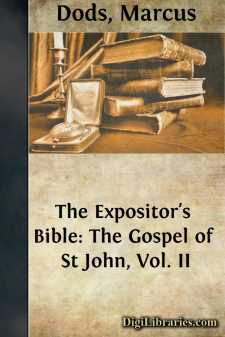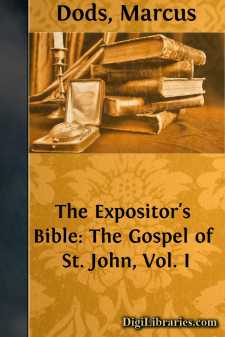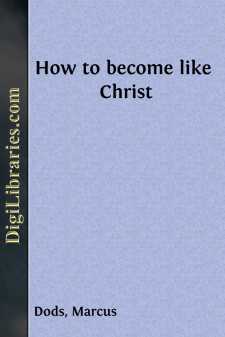Categories
- Antiques & Collectibles 13
- Architecture 36
- Art 48
- Bibles 22
- Biography & Autobiography 813
- Body, Mind & Spirit 142
- Business & Economics 28
- Children's Books 14
- Children's Fiction 11
- Computers 4
- Cooking 94
- Crafts & Hobbies 4
- Drama 346
- Education 46
- Family & Relationships 57
- Fiction 11829
- Games 19
- Gardening 17
- Health & Fitness 34
- History 1377
- House & Home 1
- Humor 147
- Juvenile Fiction 1873
- Juvenile Nonfiction 202
- Language Arts & Disciplines 88
- Law 16
- Literary Collections 686
- Literary Criticism 179
- Mathematics 13
- Medical 41
- Music 40
- Nature 179
- Non-Classifiable 1768
- Performing Arts 7
- Periodicals 1453
- Philosophy 64
- Photography 2
- Poetry 896
- Political Science 203
- Psychology 42
- Reference 154
- Religion 513
- Science 126
- Self-Help 84
- Social Science 81
- Sports & Recreation 34
- Study Aids 3
- Technology & Engineering 59
- Transportation 23
- Travel 463
- True Crime 29
Marcus Dods
Marcus Dods (1834–1909) was a Scottish theologian, biblical scholar, and writer. He is best known for his work as a translator of significant theological texts, including "The Works of Aurelius Augustine," and for his own writings on biblical criticism. Dods was a prominent figure in the Free Church of Scotland and held a professorship in New Testament Exegesis at New College, Edinburgh. His influential books include "The Parables of Our Lord" and "The Bible: Its Origin and Nature," which reflect his scholarly and thoughtful approach to Christian theology.
Author's Books:
Sort by:
by:
Marcus Dods
This twelfth chapter is the watershed of the Gospel. The self-manifestation of Jesus to the world is now ended; and from this point onwards to the close we have to do with the results of that manifestation. He hides Himself from the unbelieving, and allows their unbelief full scope; while He makes further disclosures to the faithful few. The whole Gospel is a systematic and wonderfully artistic...
more...
by:
Marcus Dods
INTRODUCTORY NOTE. In order to read the Gospel of St. John with some intelligence, it is necessary to understand its purpose and its plan. For in the whole range of literature there is no composition which is a more perfect work of art, or which more rigidly excludes whatever does not subserve its main end. From the first word to the last there is no paragraph, sentence, or expression which is out of...
more...
by:
Marcus Dods
HOW TO BECOME LIKE CHRIST. "But we all, with unveiled face reflecting as a mirror the glory of the Lord, are changed into the same image from glory to glory, even as by the Spirit of the Lord."—2 COR. iii. 18 (Revised Version). I suppose there is almost no one who would deny, if it were put to him, that the greatest possible attainment a man can make in this world is likeness to The Lord...
more...




